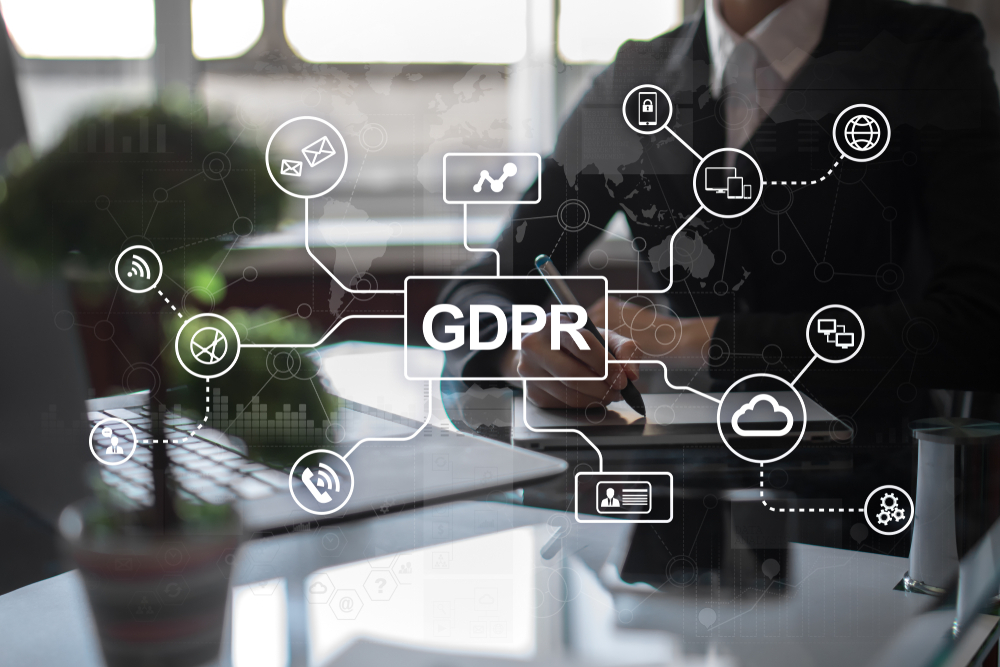GDPR and Chargebacks: What Merchants Need to Know

The Overlap Between GDPR and Chargeback Management
Chargebacks require merchants to collect, store, and transmit sensitive customer data to banks, card networks, and chargeback management platforms. Under GDPR, any personal data that identifies a customer such as name, address, purchase details, or email must be processed lawfully and securely. This means merchants need to evaluate how they share evidence in the chargeback process and ensure compliance not just with network requirements but also with data protection standards.
Risks of Non-Compliance for Merchants
The penalties for mishandling personal data are steep. GDPR violations can lead to fines that exceed the financial damage of many chargebacks combined. Beyond regulatory consequences, a data breach or privacy mishap during dispute handling can create reputational harm and erode trust with payment partners. Acquirers and networks may also scrutinize merchants who show patterns of poor data handling, making compliance an operational necessity. Ignoring GDPR obligations in chargeback management puts merchants at double risk: financial loss from disputes and exposure to regulatory action.
GDPR Enforcement: Not Just Big Tech
Fines against global tech giants like Meta, Uber, and TikTok tend to make the headlines, but enforcement has never been limited to the tech elite. According to Bridge Point Consulting, regulators have consistently applied GDPR enforcement to small and mid-sized businesses as well. Recent cases highlight that SMEs face meaningful penalties for common violations. Tax Return Limited was fined €200,000 for sending text messages without proper consent, while DM Design Bedrooms Ltd. received a €160,000 fine for making unsolicited calls. Lifestyle Marketing, Mother & Baby Ltd. was penalized €140,000 for reselling customer information without consent, Secure Home Systems was fined €80,000 for using purchased phone numbers without direct consent, and Eldon Insurance Services Limited faced a €60,000 fine for sending unsolicited emails. The most common reasons for fines among smaller businesses include processing personal data without proper consent, failing to safeguard against breaches, collecting more data than necessary, storing it longer than required, and transferring it unlawfully to third parties.
Building GDPR-Compliant Chargeback Workflows
Merchants can take several practical steps to align their chargeback processes with GDPR expectations:
- Limit data access: Ensure that only staff who need access to dispute information can view it.
- Secure storage and transmission: Use encrypted platforms when submitting evidence through portals or platforms like chargeback representment.
- Retention policies: Keep chargeback-related records only as long as necessary to resolve the dispute.
- Staff training: Teach employees how to manage personal data appropriately when working with customer disputes.
By embedding these practices into daily operations, merchants reduce both regulatory and operational risks.
The Strategic Benefits of GDPR Alignment
Compliance with GDPR does more than keep regulators satisfied. It shows customers that their privacy is taken seriously, which can improve brand loyalty and reduce complaints. It also strengthens a merchant’s reputation with acquirers, which is crucial for avoiding placement into programs like Visa’s monitoring frameworks. Importantly, GDPR compliance ensures that evidence collection and submission during the chargeback process is efficient and consistent, lowering the risk of errors that could undermine representment efforts.
Proven Solutions That Support GDPR and Chargeback Management
Today’s advanced chargeback management platforms incorporate GDPR requirements into their design. For example, ChargebackHelp’s DEFLECT, RESOLVE, and RECOVER solutions integrate secure data handling with automation to simplify compliance. Whether it’s using Verifi Order Insight and Ethoca Consumer Clarity to prevent disputes before they become chargebacks, or consolidating chargeback alerts to handle disputes quickly, modern solutions reduce the burden on merchants while protecting sensitive customer data.
Next Steps
Merchants should treat GDPR as part of their broader chargeback management strategy, not a separate challenge. By adopting GDPR-compliant processes and partnering with solutions that embed data protection standards, businesses can reduce risks on two fronts: avoiding disputes and avoiding regulatory action. If you want expert guidance on aligning chargeback management with GDPR, reach out to our team today.
Why ChargebackHelp?
ChargebackHelp brings together the most advanced chargeback management solutions to help merchants reduce risk, recover revenue, and remain compliant with network and regulatory requirements. From alerts and representment to full-scale automation, our platform gives merchants the tools to fight chargebacks while meeting data privacy obligations.
FAQs: GDPR Chargeback Management
Does GDPR apply to chargebacks?
Yes. Because the chargeback process involves sharing personal data, GDPR compliance is mandatory for merchants operating in or serving the EU. ChargebackHelp ensures that merchants can manage chargebacks in a way that meets GDPR requirements.
What personal data is shared in a chargeback process?
Merchants often need to provide customer names, addresses, receipts, and communications to resolve disputes. ChargebackHelp helps ensure this data is shared securely and only when necessary.
How long can merchants keep chargeback-related data?
GDPR requires that personal data is not kept longer than needed. ChargebackHelp solutions help merchants establish clear retention policies that protect both compliance and efficiency.
How can GDPR compliance reduce chargeback risks?
When data is handled properly, disputes are resolved more effectively and reputational risk is minimized. ChargebackHelp’s workflows combine compliance with proactive chargeback prevention.
What role does automation play in GDPR-aligned chargeback management?
Automation ensures consistency in how data is processed, stored, and transmitted during disputes. ChargebackHelp’s automated solutions reduce manual errors and improve GDPR compliance.
How can ChargebackHelp support GDPR compliance in chargeback management?
ChargebackHelp’s platform is designed with data protection in mind, ensuring that sensitive customer information is processed securely at every stage of the chargeback process. Our solutions automate evidence submission, apply strict access controls, and follow retention policies that align with GDPR requirements. By centralizing dispute workflows through one secure portal, merchants can confidently manage chargebacks while demonstrating full compliance with GDPR standards.







